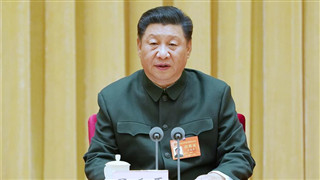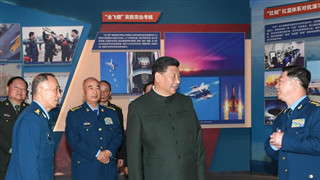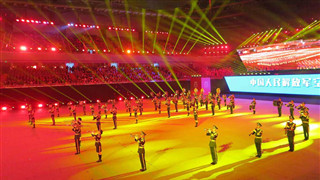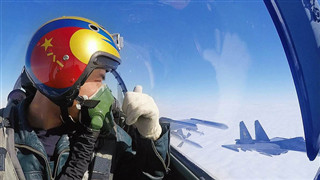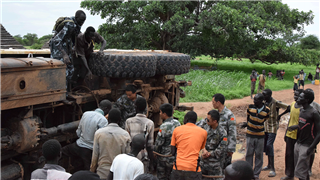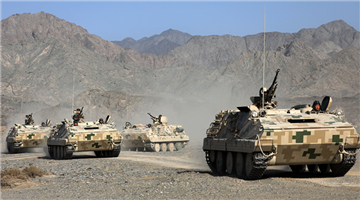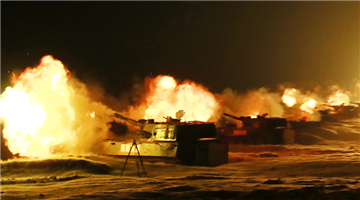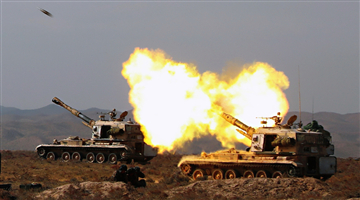By Du Chaoping
As negotiations between the US and the Democratic People’s Republic of Korea (DPRK) have come to a standstill, the relation between the DPRK and the Republic of Korea (ROK) has chilled, and the DPRK demanded the other two countries to change their attitudes toward it by the end of this year. How will the US and the ROK respond to this situation? Now that the US and the ROK also have divergences over the sharply rising “protection expenses” and the ROK-Japan General Security of Military Information Agreement (GSOMIA), will the ROK bend under pressure?
The ROK media reported that senior American military officers have recently visited the ROK in succession and attended the ROK-US Military Committee Meeting (MCM) and Security Consultative Meeting, trying to put maximal pressure on Seoul. However, the ROK will not accept Washington’s ridiculous demand, according to some analysts.
Military exercise reveals America’s true colors
To demonstrate strength and honor the so-called alliance security commitment, the US and the ROK have been holding frequent joint military exercises for a long time. But in response to the positive changes in the peninsular situation and create a favorable atmosphere for talks, they called off large-scale exercises last year and organized small drills instead. In 2019, they have already held the “Alliance” and “Ulchi Taegeuk” exercises, to be followed by another air exercise in mid-November.
The wintertime “Vigilant Ace” exercise that is usually held in December is canceled again this year. Instead, the American and the ROK troops will carry out separate war-readiness exercises and the original joint subjects will be replaced by a small-scale joint exercise. The US Department of Defense said the exercise is aimed to ensure the joint responses between Washington and Seoul, which are now working on the details.
This was immediately condemned by the DPRK, whose Foreign Ministry announced that the resumption of military exercises of Washington and Seoul has revealed America’s true colors and will aggravate the confrontation with Pyongyang. Suspending one exercise and staging a new one don’t change anything. Although, according to a ROK government official, Washington is trying to bring Pyongyang back to the negotiation table, Pyongyang’s request that Washington should change its DPRK policy obviously will not be satisfied given the new US-ROK exercise.
Divided on military expense agreement
Ever since the DPRK changed its policy, halted nuclear missile tests and had direct dialogues with the US, the ROK has been playing the middle-man in hopes of improving its relation with the DPRK and alleviating the peninsular tension. But the US and the ROK, which have kept their steps aligned all along, recently had divergences over the bearing of military expenses of US troops stationed in the ROK.
Several ROK media reported that during the 11th US-ROK negotiation over the Special Measures Agreement (SMA), Washington demanded an exorbitant price, asking Seoul to increase its share of defense expenses by five times to USD 5 billion. Apart from expenses for US troops stationed in the country, the money also covers the cost of mobilizing strategic assets like aircraft carrier and nuclear submarine when the Korean peninsula is in military tension. Seoul held that the additional expenses were not included in the agreement, and the negotiation came to nothing. This triggered protests within the ROK.
Besides, due to the chilling ROK-Japan relation recently, Seoul announced in August that it will not renew the GSOMIA that is to expire on November 22. This agreement not only concerns the ROK and Japan, but also is a cornerstone of America’s intelligence network in East Asia. The US Assistant Secretary of Defense Schriver said days ago that the US will convince the ROK into renewing it because its expiration will hit the cooperation among the US, Japan and the ROK. However, a spokesperson of the ROK Defense Ministry said Seoul will not consider renewing the agreement unless Japan revokes its retaliatory economic measures against the ROK.
General Mark A. Milley, Chairman of the Joint Chiefs of Staff, Admiral Philip S. Davidson, Commander of the US Indo-Pacific Command (USINDOPACOM), and Dr. Mark T. Esper, the US Secretary of Defense visited the ROK from November 13 to 15 in succession and held talks with the ROK side on a string of issues. But as the Moon Jae-in administration has seen its support rate falling to 44.5% from 83% after the ROK-DPRK Summit last year, there is very little room for compromise either on sharing more defense expenses or on renewing the GSOMIA. It’s foreseeable that the divergence between the US and the ROK will widen further, and their relation will see the lasting co-existence of cooperation and game.
